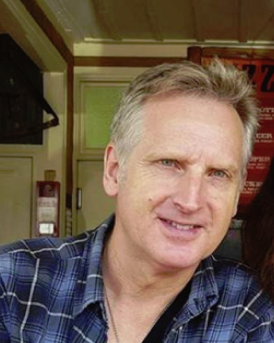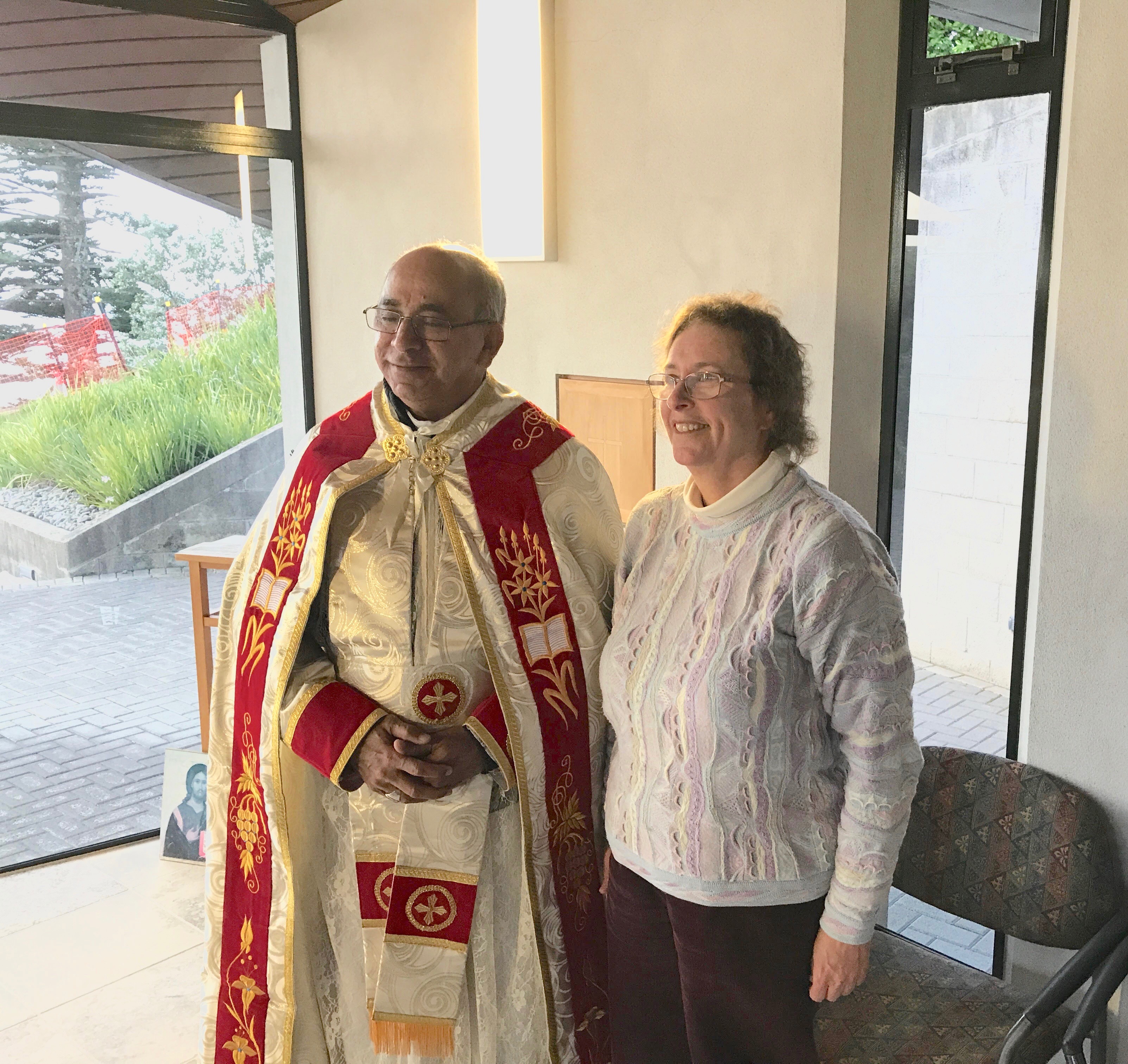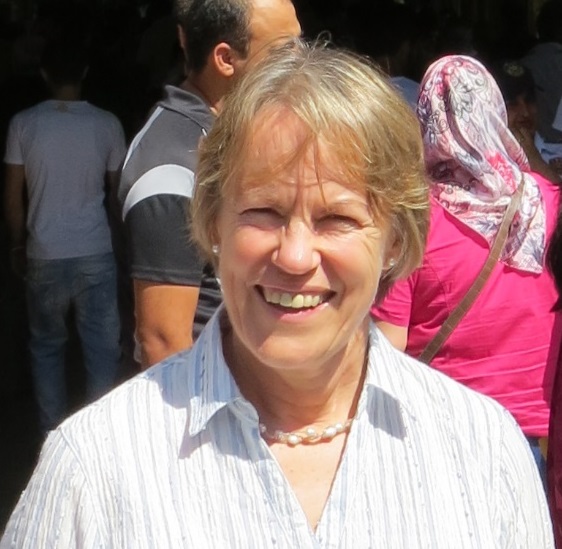February
Frances Hancock (New Zealand)
My name is Frances Hancock. I am a Irish PÄkehÄ and live in MÄngere Bridge with my partner and son. My life, work and studies seek to intersect the ethics and politics of relational justice. My Irish ancestry, Catholic upbringing and childhood experiences led me to work for justice. My social work degree from Massey University and my theological studies at Harvard Divinity School nourished 25 years of organisational, policy and community development work with indigenous peoples here and in the USA and with other diverse communities. I am now finishing a doctorate in relational ethics at Te Puna WÄnanga, The School of MÄori Education, at the University of Auckland. In addition, I co-lead or support local community-led initiatives. For relaxation, I enjoy walking alongside our beautiful Manukau Harbour, gardening on Sunday afternoons, reading memoirs, and learning the clarinet.
My Project - Possibilities for relational justice in Maori - PÄkehÄ relations
Activists, educators and philosophers argue that for those of us committed to social justice “problems are our work” (Solnit, 2006). The challenges and uncertainties we face, however, also create “the conditions through which justice can arise” (Hoskins, 2010). My doctorate explores relational qualities that enable engaging and productive MÄori-Pakeha relations. It offers pedagogical portraits of MÄori and PÄkehÄ leaders who have worked together over many years. It explores the big ideas at work in the everyday blessings of their relationships and asks what can they and their relationships teach us about crafting a just life. Relational justice, I argue, requires an “openness to exchange” (Todd, 2009) that is at once deeply human, profoundly ethical, always political, inevitably pedagogical and also spiritual.
June
The Rev. Josh Jones (Aotearoa)
I was born and raised in the city of Birmingham UK. At the age of 16, I fell in love with the Beatles, all things pop music and along with my 2 brothers, formed a band called the Quads. So began the exhilarating journey of over 25 years in the music business and a rich tapestry of experiences for the memory bank of life. These included a hit song in 1979 “There must be Thousands’ which much to our surprise, was revealed by the Guardian newspaper to be included in the late John Peels (BBC radio DJ) favourite 100 records of all time.
18 years ago, against all my anti-religious instincts, I began a suspicious and tentative journey into the Christian faith at St Martin’s church in the city centre of Birmingham UK. This has taken me on a journey I could never have envisaged, from Director of Music and Worship, to my current place as the Co-Vicar of St George’s Anglican Church Epsom Auckland arriving on these shores six years ago.
My Project - The desire to bring together the 2 pathways of my life’s passions and endeavours in a collection of music worship recordings called ‘Songs of Lament, Grace and Hope’ alongside a short book with the working title of God, The Beatles & King Cyrus.
I have always shared an intuitive desire to ‘reach’ the many people in society who have a deep spiritual curiosity and yearning but sadly ignore the path of mainstream Christianity to explore their spiritual quest.
The songs will sing of an expansive God of all humanity and the presence of Christ in our daily struggles to find the ‘beauty in the brokenness’ of all our lives. My desire is to attempt a fusion of Maori and Taize spirituality with my own song writing style.
The book will explore why music (probably more than any other art form) can transcend the barriers of language, culture, age and race, to connect, influence and shape the world and ask ‘where is the Creator God in all of this?
If we are made in the image of our creator God then every human being carries the divine fingerprint of our Creator in their soul.
Ever since humans became ‘beings’ they have found ways to make instruments and create musical frequencies by blowing, bowing, plucking and striking. We know that these ‘good vibrations’ have the power to mysteriously express and touch our humanity, moving us to cry, dance, feel happy and bring back a memory.
Is this why music is the language of the soul and God is in the music?
IF the ‘real’ good news of our faith, is that we are invited to participate in God’s mission to restore, reconcile and redeem all that’s hurt and broken in this world. How does the healing and revealing power of music fit into this?
July – September
The Revd. Dr. Catherine Laufer
I grew up in Sydney, the daughter of Hungarian Holocaust survivors. I was baptised as an infant as 'protection' against future genocide and came to my own Christian faith at an Anglican school.
I studied psychology at university and worked with intellectually disabled and highly gifted children. I spent fourteen months living and working in Jerusalem before marrying my American husband in 1981. We lived in California for a year before moving to Melbourne where we planned to start a family. Sadly, this was not to be; we were unable to have children. I became a lecturer in psychology at Australian Catholic University where I worked for 15 years.
My husband was killed in a road accident in October 1990. I had begun studying theology earlier that year and found class to be a place of refuge and strength in the midst of deep grief. My vocation to ordained ministry grew out of this experience.
At Vaughan Park, I will be working on a book of narrative theology, that is, stories which explore theological truths. Narrative theology is far more than storytelling; it not only illustrates dogma but also teaches theological concepts. This is what Jesus did in his parables, using a story to communicate deep truths.
Narrative theology is an alternative means of proclaiming the gospel in a medium that is accessible to all – clergy looking for sermon illustrations, Christians who do not read theological tomes, and the unchurched seeking to know something of faith. My long term goal is a collection of about twenty stories, each illustrating Christian doctrine. I hope that, in my three months at Vaughan Park, I will be able to complete half to two-thirds of the collection.
Bishop Bosco Puthur, Eparch of the Eparchy of St Thomas the Apostle, Melbourne which covers all Australia and New Zealand.
“Bp Bosco invited me to their liturgy. It was stunning! – chanted in Malayalam.”
11th September 2017
The Syro Malabar Catholic Mission, NZ
October
Sally Longley (Australia)
Sally Longley is a Spiritual Director and Retreat Leader based at the Canisius Centre for Ignatian Spirituality, Sydney and is also a Lay Reader in the Anglican Church.
Previously Sally spent 14 years in South Africa first as a lecturer at Rhodes University, and then after completing degrees in Theology in the UK, Sally worked as a chaplain on Transvaal university campuses during the apartheid era. After returning to Australia, Sally lectured at the Australian Catholic University, before studying spiritual direction at the Anabaptist Seminary in USA.
Sally is also a Supervisor, a member of Companions (as a giver of the Ignatian Exercises), President of the Australian Network for Spiritual Direction, an Executive member of the Australian Ecumenical Council for Spiritual Direction, and a team leader on the training program of the Residential Program for Spiritual Directors.
Sally has published a booklet and DVD: “Christian Meditation: 5 Ways to Pray”; and the book “Walking the Labyrinth as the Beloved in John’s Gospel”.
She is married with two adult children.
November
Rhonda Bliss (Aotearoa)
My project is to create a series of spiritual retreats. The writing of these retreats will be integrating all my life experiences including being a teacher and a therapist, with my desire for people to experience God’s love. My aim is to offer a welcoming and safe space for anyone who wishes to encounter the living God, recognising we are all on an individual but connected journey.
I am a psychotherapist and work with individuals and couples from a wide range of backgrounds. I have been in private practice for twelve years and was part of Youthline’s Senior Counselling Team for some years. Prior to becoming a therapist I was a primary teacher, with the majority of my teaching at a Jewish Orthodox School. I am a member of St Pauls Anglican Church, Symonds St, Auckland.
The spiritual retreats I will be creating will be focusing on the meaning of the Jewish Holy Days. Each festival highlights particular aspects of our relationship with God and can enhance our Christian journey. My intention is to take significant God inspired ideas from the festivals to reflect upon and to help us open our hearts to the voice of the Spirit.
The creative or expressive arts will be used as a means of exploring our relationship with God. Creativity is a natural way to express spirituality and recognizes that we have multiple ways of knowing, experiencing and healing. No artistic talent is required and anyone can use art media for opening up dialogue and deepening connection with God. The creative process can become at once a communication, a journey and a prayer.



 Follow us:
Follow us: